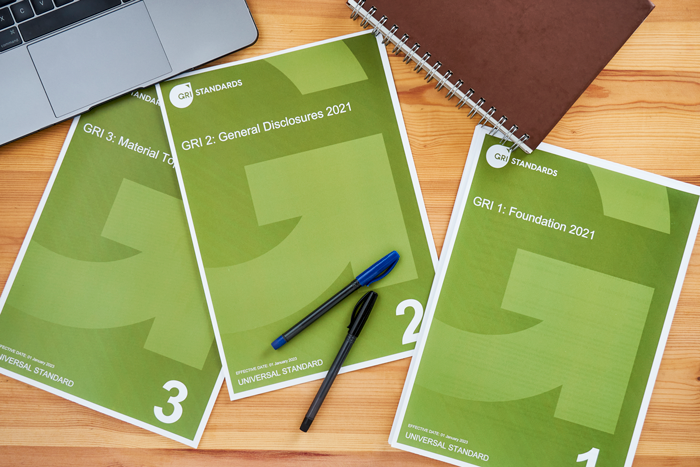GRI revises universal sustainability standards, with focus on human rights

The Global Reporting Initiative unveiled its revised Universal Standards on Tuesday to reflect due diligence expectations for organizations to manage their sustainability impacts, including on human rights.
GRI anticipates the revised standards will be used by the more than 10,000 companies already using its standards for their sustainability reporting. The standards are designed to position companies to respond to emerging regulatory requirements, including the European Union’s Corporate Sustainability Reporting Directive and the plans by the International Financial Reporting Standards Foundation to establish an International Sustainability Standards Board that the IFRS Foundation would oversee alongside the International Accounting Standards Board.
The latest revision adds new sector standards to help companies focus their reporting on the issues that matter most within their sectors. With 40 sectors already identified by GRI, standards for coal, mining, agriculture, aquaculture and fishing are already under development.

“With the most significant change since the GRI Standards launched in 2016, the revised Universal Standards set a new global benchmark for corporate transparency,” said Global Sustainability Standards Board chair Judy Kuszewski in a statement. “Fully addressing gaps between the available disclosure frameworks and intergovernmental expectations for responsible business, including human rights reporting, they will enable more effective and comprehensive reporting than ever before.”
The Universal Standards 2021 include three standards:
- GRI 1: Foundation introduces the purpose and system of GRI reporting, setting the key concepts, requirements and principles that all organizations must comply with to report in accordance with the GRI standards.
- GRI 2: GeneralDisclosuresupdates and consolidates disclosures on reporting practices; activities and workers; governance; strategy, policies and practices; and stakeholder engagement.
- GRI 3: Material Topics offers step-by-step guidance and revised disclosures on how the organization determines, lists and manages each of its material topics.
The revised standards align with the United Nations’ Guiding Principles on Business and Human Rights; the Organization for Economic Cooperation and Development’s Guidelines for Multinational Enterprises; the OECD’s Due Diligence Guidance for Responsible Business Conduct; the International Labor Organization’s International Labor standards; and the International Corporate Governance Network’s Global Governance Principles.
A new online course, Transitioning to the GRI Standards 2021 Update, offers the first in a series of training tools to be provided in the coming months.
The revisions were subject to a public comment period last year, providing stakeholders with an opportunity to input to the proposed changes. They take effect for reporting starting Jan. 1, 2023, with early adoption encouraged. Click here for a summary of the key changes and an introduction to the GRI standards.


